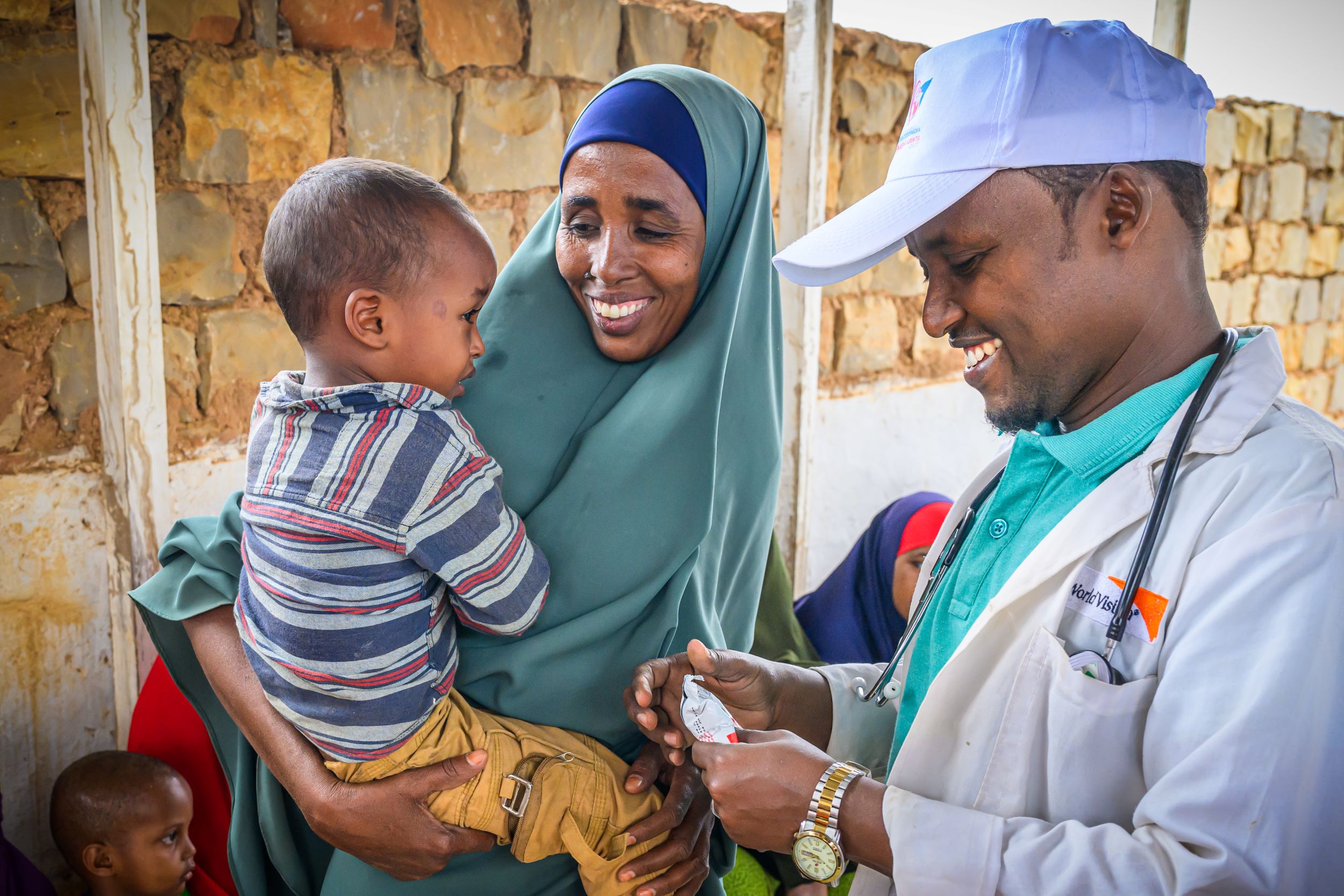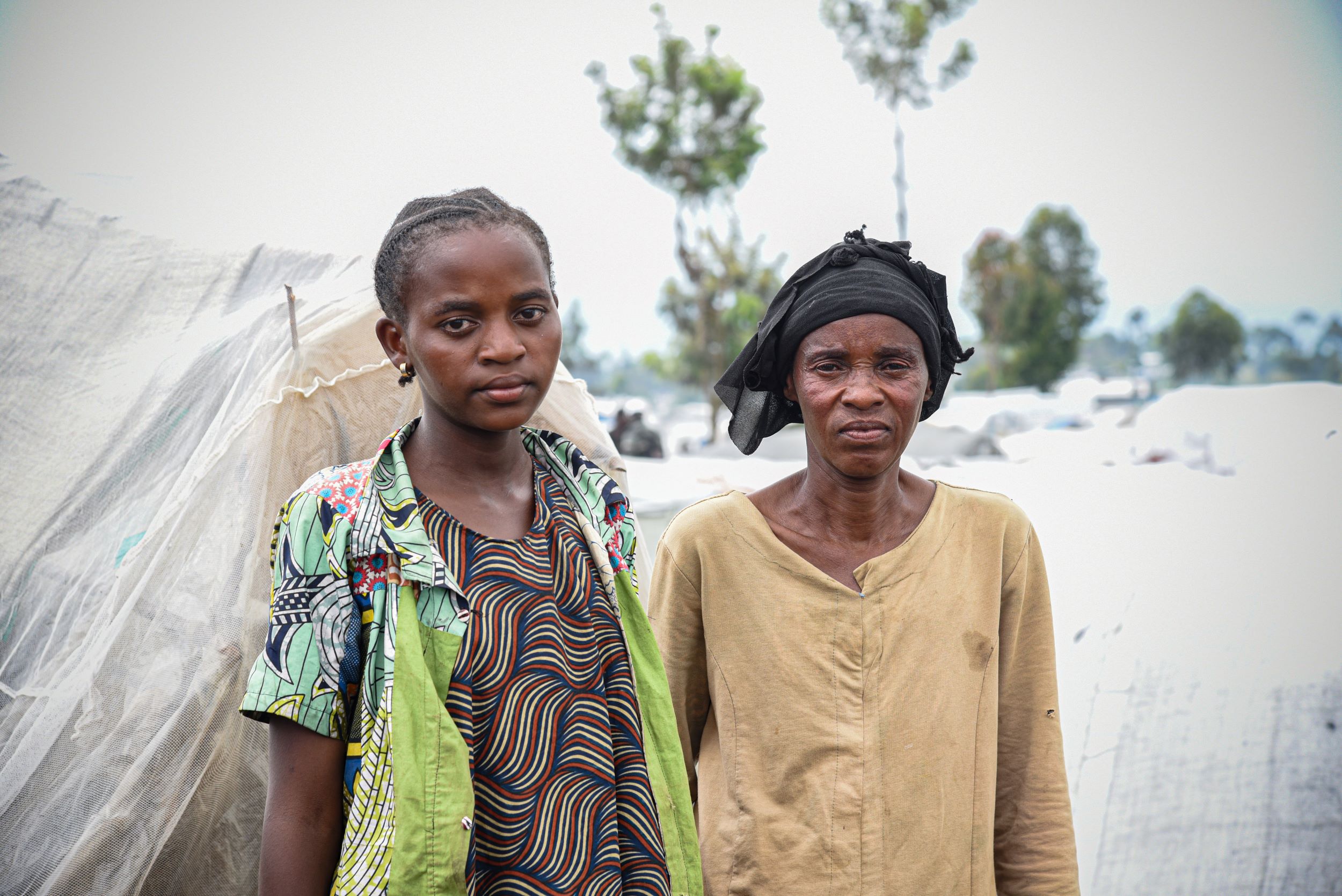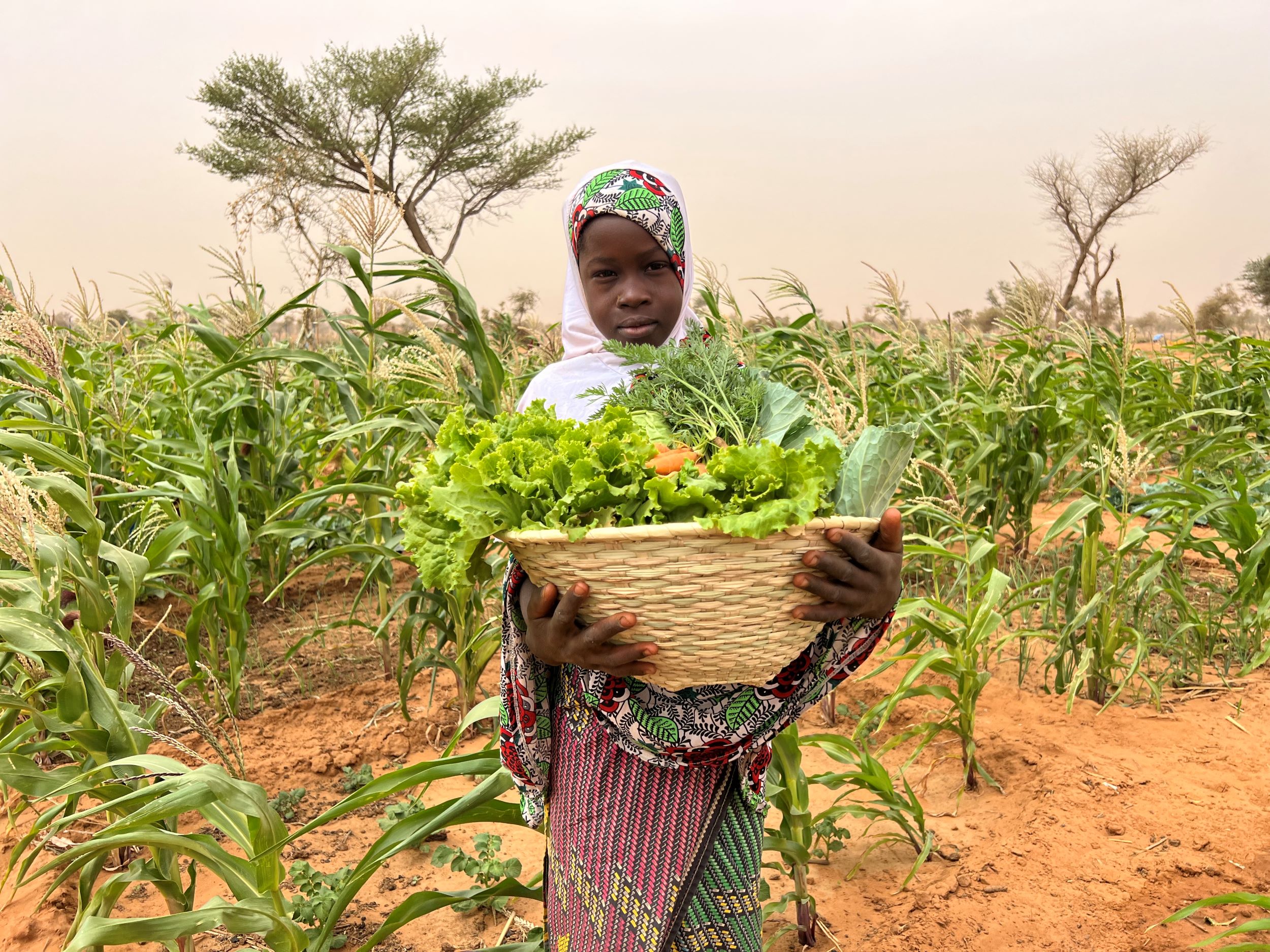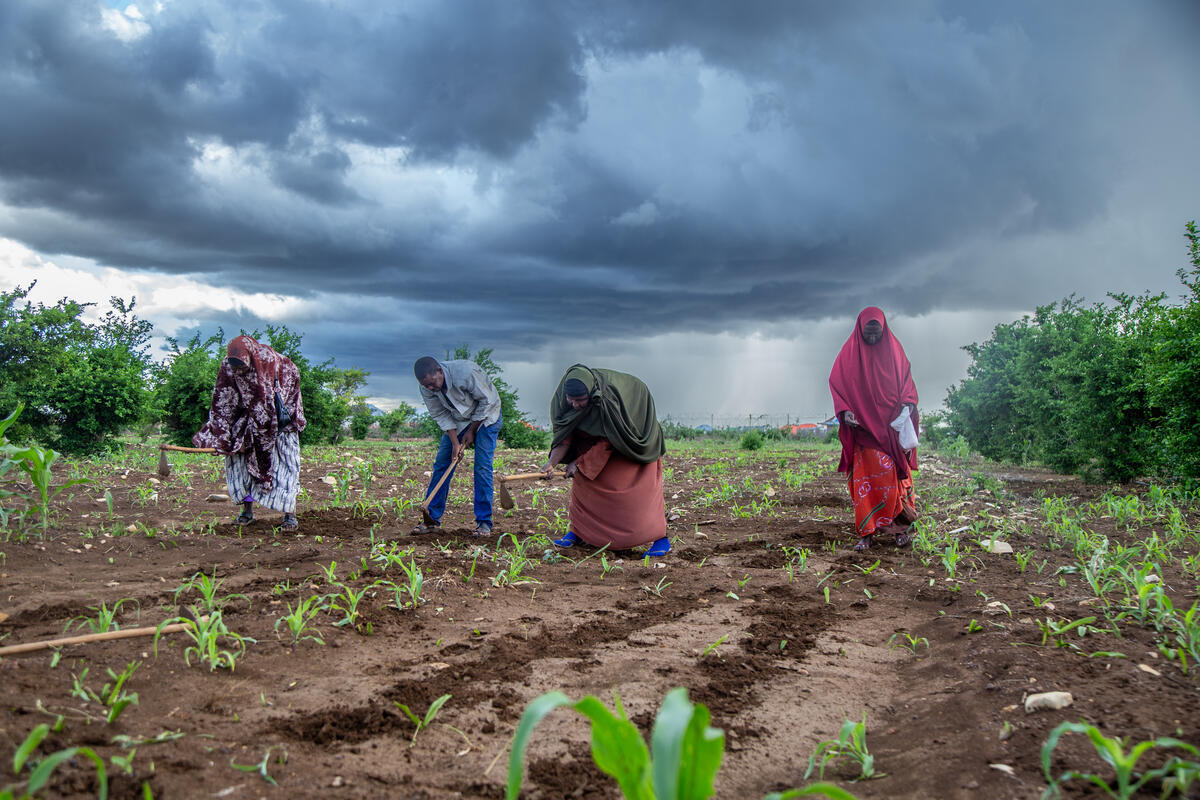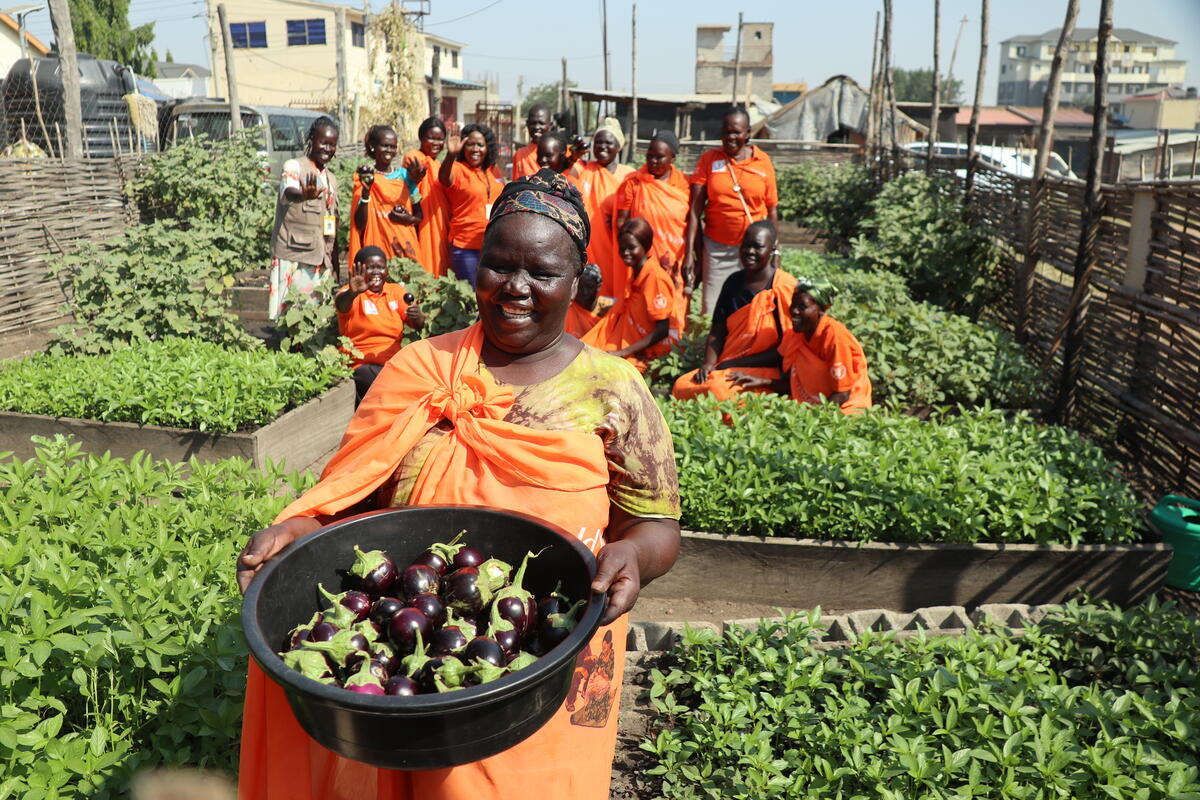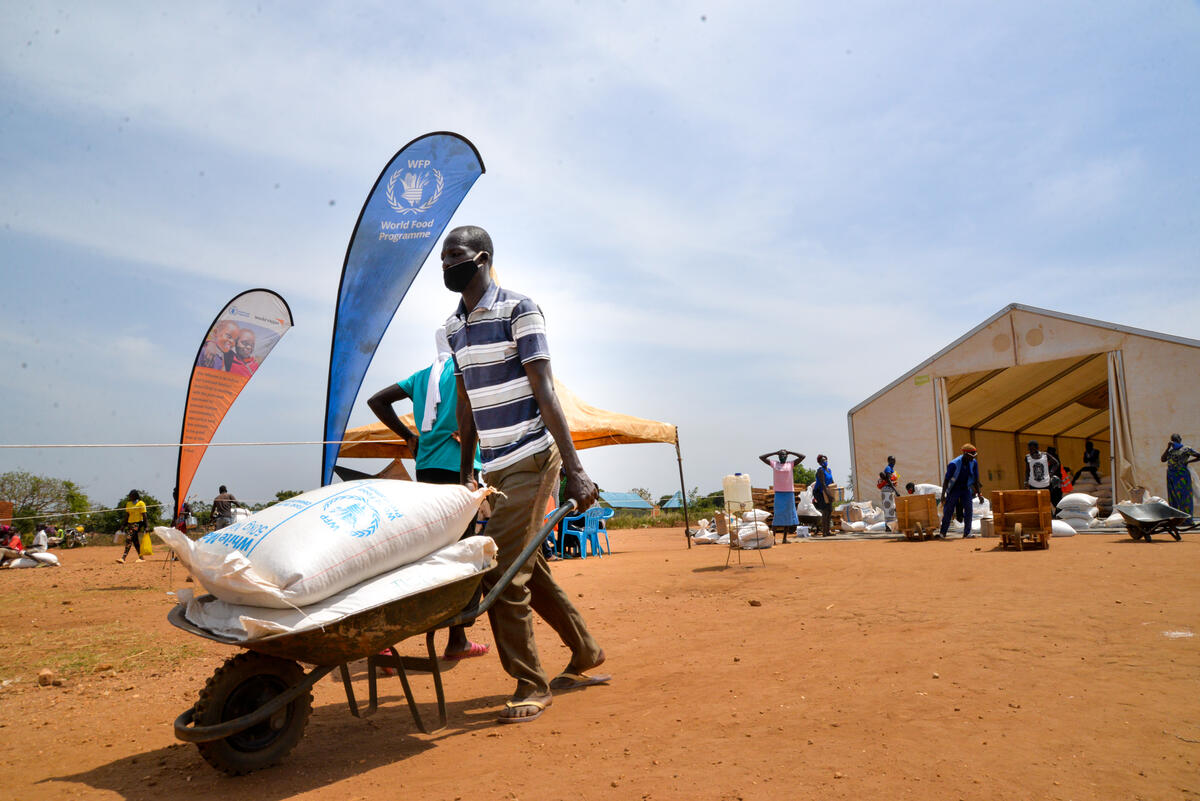
Ration cuts and the hunger crisis
A new World Vision report warns that children are at further risk of harm.
Ration cuts to those who are already vulnerable, such as refugees, are accelerating the hunger crisis, leading to increased suicidal thoughts and child abuse. These are the warnings of a newly published World Vision report that reveals:
- Half of adults feel so hopeless they no longer want to carry on living some of the time
- 68% of people affected by ration cuts said someone in their family had gone to bed hungry in the past four weeks because there was not enough food
- 41% of refugees thought both girls and boys are now subject to more violence, neglect or abuse at home.
The devastating impact of ration cuts
Published in time for World Refugee Day, the report titled Rations Cuts: Taking from the Hungry to Feed the Starving warns that hunger isn’t just killing people through malnutrition – it's also killing people through mental illness. It highlights the devastating impact of ration cuts that aid agencies are being forced to make due to funding shortfalls. These cuts are dramatically affecting children and their families, showing the true cost of underfunded aid efforts.
Today, refugees and other vulnerable families are receiving just a fraction of their monthly required calories or being cut from aid distributions altogether, leading to a drastic reduction in meals and increases in child marriage, child labour, and mental health risks.
Hunger and mental health
World Vision’s new research found that more than one in ten (13%) of adults say they feel so hopeless that they no longer want to carry on living. Half of adults reported feeling this way most or some of the time.
In Afghanistan, parents’ responses suggest that nearly all adults (97%) are at risk of mental health disorders – more than four times the prevalence found in other conflict-affected populations. Similarly, levels were four times higher in Lebanon (89%) and over three times higher (79%) in the Bidi Bidi refugee settlement, Uganda.
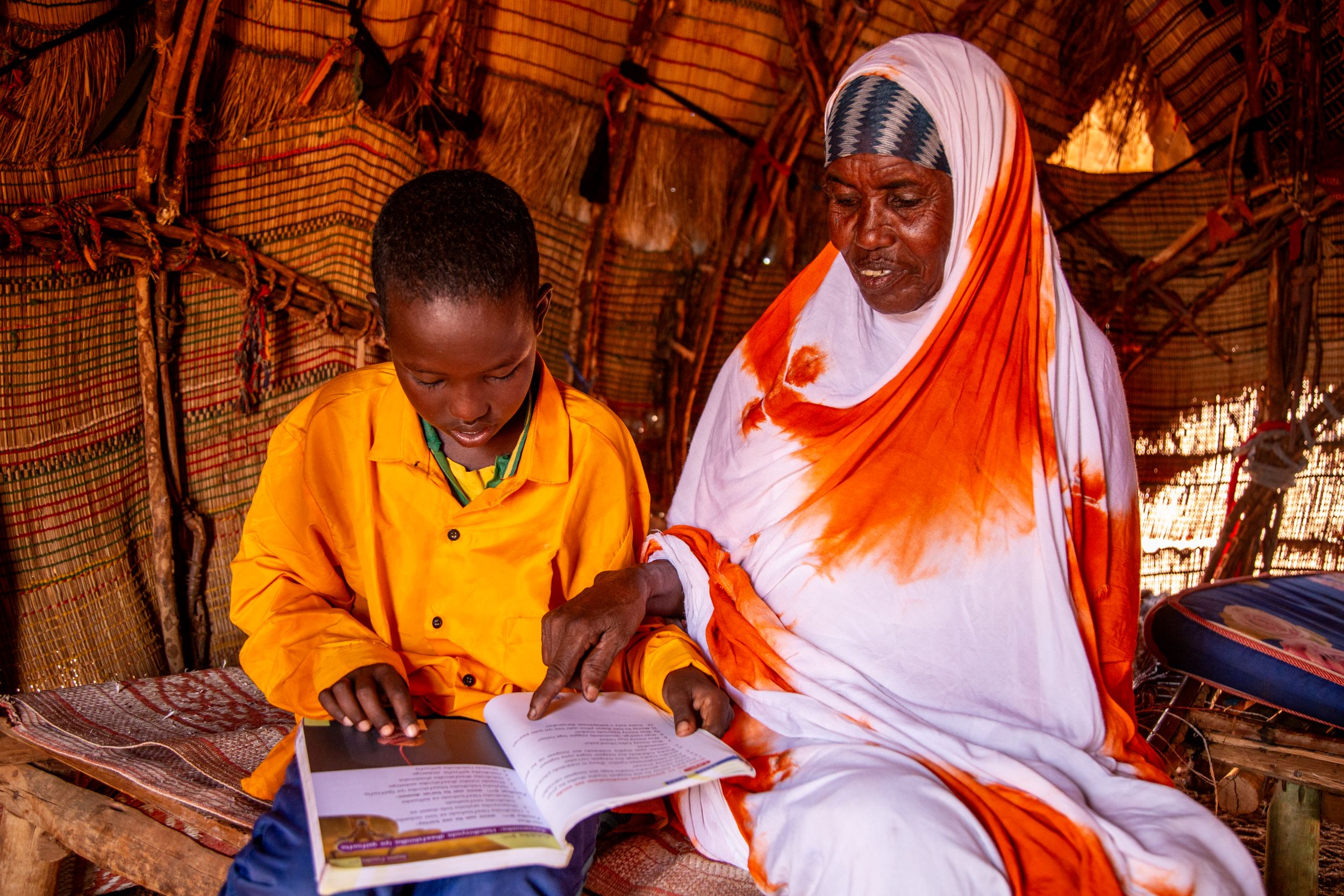
The need for more funding
Globally, humanitarian appeals are drastically underfunded. Humanitarian agencies are being forced to cut back and reduce their assistance to focus only on those most urgently in need, decreasing targets through cutting food rations.
The UN Office for the Coordination of Humanitarian Affairs (OCHA) has revised its target for humanitarian aid in 2024 to 181 million people, far short of the 281 million affected by acute food insecurity, let alone any other humanitarian need. According to the World Food Programme (WFP), every percentage cut in assistance results in pushing more than 400,000 people from ‘crisis’ levels of acute food insecurity to ‘emergency’, bringing them one step closer to starvation.
38 million 'one step away from starvation'
Refugees and other vulnerable families are receiving just a fraction of their monthly required calories or being cut from aid distributions altogether, leading to a drastic reduction in meals. The report’s research reveals that while children on average consumed two meals per day before the cuts, when asked how many meals they were eating in January 2024, most families had eaten just one or no meals the day before.
More than two-thirds (68%) of people said someone in their family had gone to bed hungry in the past four weeks because there was not enough food. Almost half (46%) said someone had gone a whole day and night without eating.
Mary Njeri, Director of World Vision’s Global Hunger Response says, “These findings should instantly ring an alarm bell. Climate change, conflict, and Covid have left more than 38 million people one step from starvation, and humanitarian aid is struggling to keep up. Children are telling us about parents sending them to work or to get married, and in some cases, considering suicide as a result of the cuts.”
Njeri continues, “We must urgently increase the essential lifesaving aid that children and their families so desperately need to survive. Long-term support is also essential so children can go back to school and families can once again farm, find jobs and support themselves.
"We already knew that one in five people affected by conflict are at risk of experiencing some form of mental health disorder, and during Covid saw the additional impact food security could have on parents’ mental health. We need not just increased food assistance, but better education, mental health, and protection support for the most vulnerable families to prevent a mental health epidemic.”
Hunger and the risk of harm to children
The report also exposes an alarming increase in the risk of child marriage, sexual violence, child labour, and child trafficking – with 41% of refugees thinking both girls and boys are now subject to more violence, neglect or abuse at home. Almost a third (30%) of parents thought that ration cuts were pushing girls into child marriage, rising to 97% of parents in Afghanistan. In Bidi Bidi refugee settlement, Uganda, 75% of families reported underage girls getting pregnant, leading them to drop out of school.
“We know that with the right support, children and their families can thrive,” says Njeri. “No one should be going hungry in the 21st century. World leaders must urgently accelerate efforts to resolve conflicts and tackle climate change, and to provide the children and families affected with the humanitarian support they need. It is essential that we come together and say ‘enough’.”
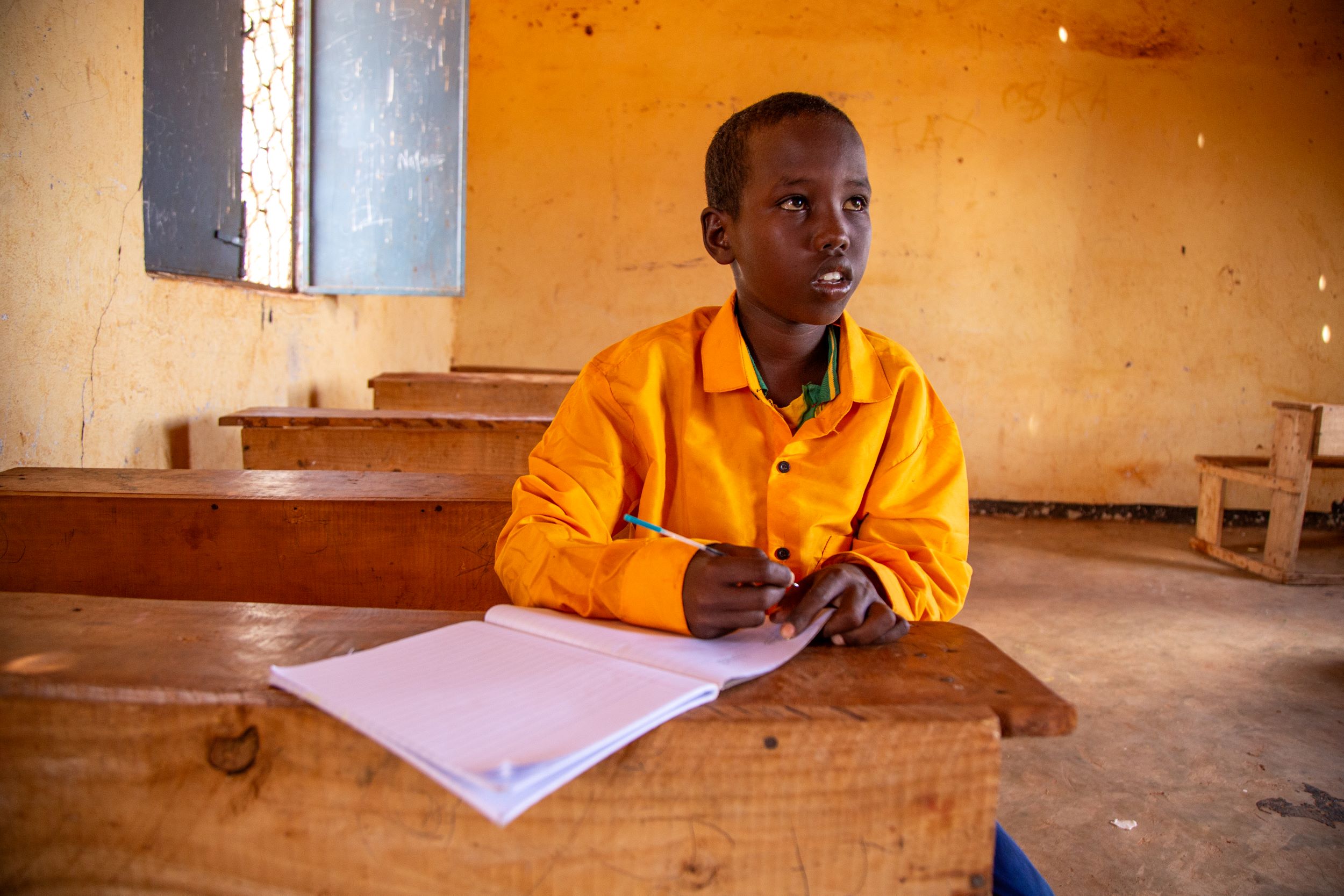
The impact of rations in Somalia
For most of his life, Abdifatah, 13, has lived in a camp for displaced families.
“We used to have livestock that we milked, and we had a productive farm,” his grandmother, Abdio, recalls. “An eight-year drought happened, and we depleted all of our savings. All of our livestock died. We abandoned our homes... It took us two nights to reach [the camp]. Four nights later, the village administration and NGOs came to us. They began providing us with financial assistance.”
“After receiving the aid money,” Abdio continues, “we and the children were able to eat. We regained our energy, and the feeling of hunger lifted. We used the money to purchase rice, flour, pasta, and oil. The children would have anjero (Somali bread) with sauce for breakfast. They ate lunch at school and I prepared dinner for them at home. We lived a good life. [But then] the aid money stopped. Since then, we have been merely surviving.”
“When we had money, we would eat three meals a day: breakfast, lunch, and dinner,” Abdifatah remembers. “Now there’s not enough food in the house and we only ate one meal a day.”
Hunger sets in
“When the aid money stopped, hunger set in,” Abdio explains, “and the children fell ill. They couldn't endure the hunger and began vomiting. We began gathering wood to sell to support the children. Despite our efforts, it wasn't sufficient, and the hunger intensified.
“Abdifatah and the other children continue to attend school and haven't stopped going. However, their memory has declined and hunger has affected them. They aren't studying as diligently as they used to.”
“I didn't have much energy to go to school and play football,” shares Abdifatah. “Even concentration in the class is a problem because of hunger. All the other kids felt hungry too. There’s a big difference between some of my friends who are in school and those that are not, those in school have discipline and hope for the future. That’s why my grandmother encourages us to go.”
“The hunger is not only affecting my family but also all the IDP camp,” explains Abdio. “Children no longer eat a nutritious breakfast in the morning. No one is receiving any aid money. All the camp residents are suffering from hunger, fatigue… everyone in the camp is struggling to survive.”
“There is a type of hunger that can drive the person to madness.”
In 2022, World Vision and WFP worked together to avert famine in Somalia, providing 100,000 families with urgently needed food and cash assistance at the height of the drought.
Today that work has been reduced by 70%. World Vision staff are continuing to provide a small amount of food to families on a rotational basis, with 30,000 families receiving food for six months at a time. We’re also working with partners to provide clean water and latrines for everyone in the camp to limit the spread of diseases that could prove deadly for malnourished children.
There should be ENOUGH
World Vision is working with communities so that children and their families can have enough nutritious food to thrive. Our ENOUGH campaign is about raising awareness and funding to help end child hunger and child malnutrition.
No child should have to live on one meal a day. Your donation today will bring greater change and make a long-lasting difference to the lives of children like Abdifatah.

